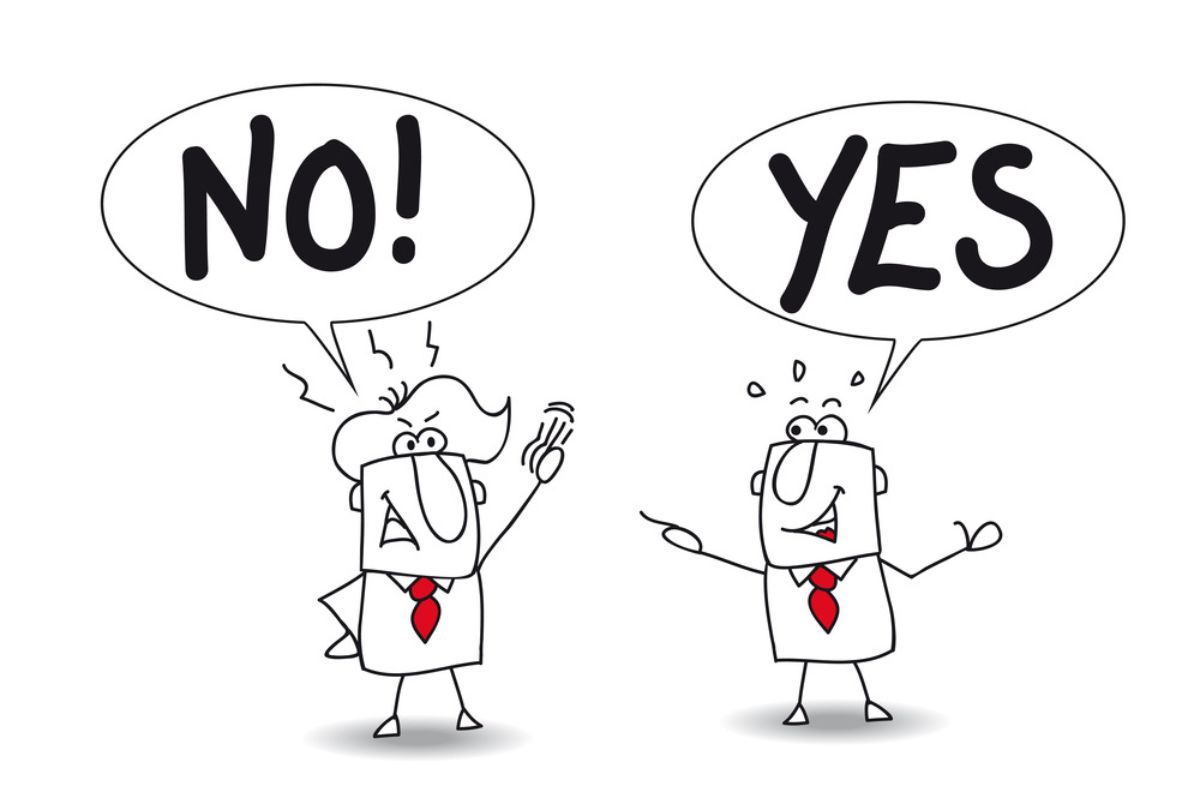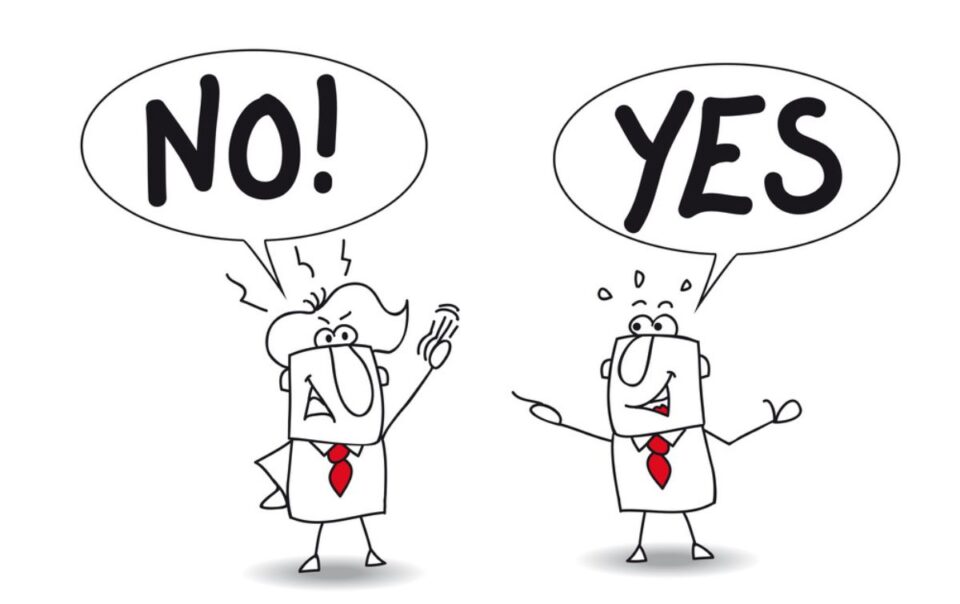Communication
Is Preoccupation Your Favorite Location? 7 Tips On How To Stop Being Consumed With Worry And Start Living In The Present Moment!
 Has someone ever asked you: “Hey, what are you thinking about?” or something of the sort, referring to observing you checkout of a conversation? Or do you often find yourself consumed with thoughts about things over which you don’t have any immediate control? Or have you been so entrenched in random thoughts, you’ve totally lost track of time? IF you answered “yes” to any of the above, then preoccupation may have become your favorite location. And you’re probably missing out on enjoyable moments in the present because you simply can’t get your mind off of other unnecessary distractions.
Has someone ever asked you: “Hey, what are you thinking about?” or something of the sort, referring to observing you checkout of a conversation? Or do you often find yourself consumed with thoughts about things over which you don’t have any immediate control? Or have you been so entrenched in random thoughts, you’ve totally lost track of time? IF you answered “yes” to any of the above, then preoccupation may have become your favorite location. And you’re probably missing out on enjoyable moments in the present because you simply can’t get your mind off of other unnecessary distractions.
Of course, I’m teasing when I infer that anyone actually favors or likes being in a state of worry, but I want to get your attention because, while you may not enjoy worrying, you’ve become attached in some way to your fears and concerns. But, just as you can “unfollow” someone on Twitter, or block someone from your Facebook, you can learn to “unfriend” one of the enemies of the mind—i.e., preoccupation!
Clearly, you aren’t the first or only person on the planet to become somewhat obsessive about the details of life. After all, we live in a complicated world with many pressures and stressors. But worrying about things we have no control over – namely, the past or the future, is a recipe for disaster! Plus it breeds, not only emotional discomfort and anxiety (fearing danger when there is none), but a whole lot of other bodily ailments such as: sleepless nights, headaches, muscle tension, and loss of motivation. That’s not to say that planning for the future and/or assessing mistakes made in the past and learning from them doesn’t have great value. But dwelling on something that hasn’t happened yet (and may never happen) or being mired in regret over things that have already passed, will only thwart your ability to enjoy the present moment and deprive you of peace and joy.
So if you’re ready to start occupying your mind more productively, try the following 7 tips:
- Visualize a stop sign in your mind. This should be erected whenever you travel down the road to worry and preoccupation. Symbolic pictures in our mind are powerful in redirecting our thoughts.
- Replace all “what if” questions with “what is,” and “what else?” For instance, if you fear you will be passed over for a promotion and then worry that you’ll never be able to afford your dream vacation (the ‘what if’), you should instead think, “As of now, I’m still in the running (the ‘what is’), but whether I get the promotion or not, I can look at other avenues to earn extra money for travel (the ‘what else’).” This allows for positive outcomes instead of catastrohpies.
- Remind yourself that most of the things we worry about don’t actually happen and when they do, they usually aren’t as bad as we imagined. Of course, this isn’t always the case. Sometimes you will have to deal with catastrophes. But at least save your internal resources for when they actually occur and not waste them on pictures of events that aren’t reality.
- Keep a journal of things that bother you. Sometimes, simply putting our worries down on paper allows them to dissipate more quickly.
- Practice the triangle of getting centered. 1) Sit down in a supportive position with feet firmly planted on the ground; 2) take ten deep breaths exhaling longer than inhaling; 3) scan the immediate environment for danger. Usually you’ll discover that there is no imminent threat to your wellbeing, so you will start to relax.
- Don’t procrastinate! Obviously, this is easier said than done for those who have become accustomed to putting off until tomorrow what should be done today. But, while there are some things we can postpone without serious consequences, life usually runs more smoothly when we tackle what’s within our reach in the present moment.
- Do not over schedule yourself. Even if you are superman/woman, we all have limitations to how much we can get done in any given day, lest we compromise meeting our basic needs. Sure you can forgo sleep for a night or two to accomplish something you’re really excited about, but that would not be a healthy solution long-term.
Now sit back, think happy thoughts, and take life one-step at a time!
When You Feel Funny About Your Friend’s Honey
 Have you ever been in the position of having a close friend whom you perceive to be in a bad relationship, but your friend is blinded by “love?” You want to tell her what you think but you’re pretty certain she won’t listen. Or worse yet, she might falsely believe you are jealous or envious of her and then won’t trust your genuine intentions of helping her steer clear of a future broken-heart. If you’ve ever experienced this scenario, you know how awkward and uncomfortable this situation can be. And, you may be at a loss for what to do and/or question whether you should do anything at all.
Have you ever been in the position of having a close friend whom you perceive to be in a bad relationship, but your friend is blinded by “love?” You want to tell her what you think but you’re pretty certain she won’t listen. Or worse yet, she might falsely believe you are jealous or envious of her and then won’t trust your genuine intentions of helping her steer clear of a future broken-heart. If you’ve ever experienced this scenario, you know how awkward and uncomfortable this situation can be. And, you may be at a loss for what to do and/or question whether you should do anything at all.
I can say for certain that I have been in several not-so-good, and even downright abusive relationships, wherein I knew my friends could see the writing on the wall—but I was too invested, too stubborn, or too whatever to see the red flags in front of me. Yet, because they feared my possible reaction and didn’t want to offend me, many very insightful opinions were never spoken. As a result, I probably stayed longer in these dead-end, painful, relationships than would have been necessary had someone had the “courage” to speak her mind and set me straight. Mind you, this is not anyone else’s fault, and it certainly isn’t anyone’s responsibility to micromanage someone’s chosen love path. But I think many of us go mute for fear of undesirable consequences when a friend may truly need a wake-up call.
If you know someone you believe is headed down, or already on, misery row—you might try the following course or action:
- Check your motives! Be certain you are not operating out of jealousy or envy but rather out of pure concern for your friend’s wellbeing.
- Before diving in with your laundry list of doubts, ask your friend first if he/she is open to feedback concerning your observations/opinions about his/her relationship. Often times, people are more receptive to feedback if they feel it has been solicited rather than completely unsolicited.
- If the answer is “no,” then let it go. Of course, in a situation where your friend is being abused, you probably shouldn’t remain silent. Your statement may be as simple as, “I care about you and I want you to be aware that I am very worried about you and hope you will reconsider the relationship you have chosen.” If your friend blows you off—at least you will have a clear conscience that you have voiced your fear. Hopefully, somewhere down the line, when she figures it out for herself, she will seek your aid and see you as her ally, not her enemy.
- If the answer if “yes”, tread softly-but directly. You might say something like: “I don’t want to interfere with your choices, and this is only my opinion, but…(insert your opinion here).”
- Give a personal example. Many people become more receptive to feedback when they have a sense that the messenger has shared in a similar personal experience. So if you have had a relationship in your life wherein you were blind-sighted to all the warning signs, let your friend know that he is not alone and that you are coming from a place of empathy, not harsh judgment.
- Be prepared for some awkwardness between you and your friend. Most people are pretty sensitive when it comes to matters of the heart. Simultaneously, most of us like the approval from our friends as to the choices we make in our lives. If these two are in contrast, conflict can ensue. But conflict is not always a bad thing and can sometimes drive our friendships to deeper and more meaningful levels.
Probably of most importance is to let your friend know that you respect his/her choices and you will do your best to stand by him/her no matter what!
Lose the Shame and Get Back in the Game of Life—8 Tips to Accept Your Mistakes and Move Forward with Positivity!
![]() Do you beat yourself up over minor mistakes? Do you often feel bad about yourself and see others as better than you? Do you take less than you deserve in life because you fear others won’t like you or might see you as greedy? If so, more than likely you suffer from too much shame. Unlike guilt (the experience we have when we’ve done something wrong), shame is a state-of-being wherein we perceive ourselves as unworthy, damaged, and/or underserving of having our needs met.
Do you beat yourself up over minor mistakes? Do you often feel bad about yourself and see others as better than you? Do you take less than you deserve in life because you fear others won’t like you or might see you as greedy? If so, more than likely you suffer from too much shame. Unlike guilt (the experience we have when we’ve done something wrong), shame is a state-of-being wherein we perceive ourselves as unworthy, damaged, and/or underserving of having our needs met.
Trust me. No one understands the consequences of excessive shame better than I do. I lived the first half of my life plagued by it. Shame causes us to treat ourselves badly and prohibits us from living fully and happily in our lives. Sure, we all need a small dose of it, now and again, to keep us humble and able to be civilized. But when shame runs the show, we’re doomed.
Sadly, those who need to experience shame, like serial killers, rapists, child molesters, etc., often don’t even have a conscience at all, let alone the capacity to judge themselves harshly. Whereas “good people,” who occasionally make mistakes or do the wrong thing, often become mired in a state of shame. And even sadder, these same folks often don’t believe they deserve any better.
What does shame get you? More shame and a perpetual existence of making yourself small. Or sometimes people compensate for deep feelings of deprivation due to shame and secretly harbor excessive entitlement! Neither makes for a happy existence.
So if the above describes you—try the following 8 tips to help you unplug from the negativity of shame and move into the realm of positivity!
- Say aloud five kind things about yourself daily. These don’t have to be grandiose as in “I’m the greatest person on earth.” But instead, for instance, if you are a compassionate person, then honor that quality. (BTW- if your shame prevents you from being able to identify any characteristics to admire in yourself, then ask a friend or loved one to give you ideas.)
- Do something for yourself you would not ordinarily do – get a massage, indulge in a one-hour bubble bath or take a drive somewhere you find beautiful. When we act as if we are worthy and meaningful, we usually start to feel more important.
- Practice the mantra – “I can’t please all people all of the time.” Furthermore, try to remember that most of the time it really doesn’t matter what other people think about us! But what we think about our own selves matters the most!
- Make note that good people sometimes do not-so-good things. This fact, however, does not equate with being a bad or unworthy person. Cut yourself some slack. Acknowledge your mistakes and then move on.
- Stop trying to control things you have no control over. There is no better way than to feel ineffective and bad about yourself than by expecting yourself to be able to fix something that isn’t in your power to fix, e.g. like other people places and things. So instead, take control of what is in your power, that is, your own feelings, thoughts, and actions!
- Create a balance between doing things for yourself and doing things for others. It’s wonderful to be generous with our time and energy for the good of others. But when we do so at the expense of meeting our own needs, we will ultimately drown. So make sure you remember yourself in the process. And please note—when you’re doing things for others – it should come from a place of generosity, not from trying to prove you are valuable.
- Don’t let childhood wounds dictate how you feel about yourself in adulthood. If you were treated badly – remember that you have the power to treat yourself well today.
- Avoid negative people or those who provide unconstructive criticism, if you can. It’s not likely to be able to completely eliminate harsh or demanding people from our lives, but when it’s a viable option, take it! For instance, while we may have to deal with a crotchety co-worker for a year or so in order to get the promotion you’re waiting for–there’s no need to continue a friendship with someone who is never there for you in your time of need but who will readily suck all of your time and attention for her benefit!
I’m well aware that these tips may be very hard to implement, particularly for those who have been badly abused or neglected in their lives. But the transformation of shame into healthy self-worth must be done in order to have the freedom to choose a happy existence in adulthood. So if shame is the block to your sense of wellbeing, get help now! If you can’t afford professional counseling, use alternate resources such as support groups, self-help books, or other community offerings. Help is available if you seek it!!
Do You Need Some Space From Your Lover or Others? 8 Tips on How to Create Alone-time Without Being Offensive!
 Throughout most of my life, I’ve been referred to as a contact chunky! That’s right – someone who couldn’t get enough connection with other people, especially from a significant other no matter how much attention I was given. Truth is – it wasn’t so much about truly loving the contact – but more about my internal loneliness and low self-esteem. In my quest for more and more connection, I falsely believed that someone would finally fill up my empty well. Wrong! Plus, since I was prone to interpreting other people’s need for space as a sign of personal rejection, I feared that my intimate partner would feel the same way. And I certainly didn’t want to be responsible for hurting someone’s feelings.
Throughout most of my life, I’ve been referred to as a contact chunky! That’s right – someone who couldn’t get enough connection with other people, especially from a significant other no matter how much attention I was given. Truth is – it wasn’t so much about truly loving the contact – but more about my internal loneliness and low self-esteem. In my quest for more and more connection, I falsely believed that someone would finally fill up my empty well. Wrong! Plus, since I was prone to interpreting other people’s need for space as a sign of personal rejection, I feared that my intimate partner would feel the same way. And I certainly didn’t want to be responsible for hurting someone’s feelings.
Through many years of therapy and personal self-growth – I finally was able to grasp that it was me who needed to fill up that hole inside me and let connections with important people around me be a bonus pack– not the substance to my existence. Now, years later, and quite a bit more self-content and self-accepting – I find that I desire a considerably more personal and psychological space. It’s not that I don’t cherish my relationships with my lover, family members, friends, and clients but I just don’t need to be attached at the hip anymore.
I noticed, however, in my plight for separateness and independence– like many others who begin expressing a newfound need, I became a bit of a bull in a China shop and I lacked the proper finesse in stating my needs. For instance, rather than making time for myself, I would sometimes manufacture something to be angry about in order to get some space rather than just ask for it. If you share a similar struggle, here are 8 tips on how to set loving boundaries.
- Recognize the difference between the need for personal/psychological space versus physical space. Sometimes we are perfectly capable of hanging out with someone in the same room as long as we are free to do our own thing and only periodically connect with our loved one. This is called “parallel play.” Other times – not only do we need a break from interaction with others, we also need some physical distance to feel fulfilled. That would be called “solitary play.” By allowing ourselves these two forms of play, we create space for “interactive play.” Keep in mind that needing space is not the same as rejecting or abandoning someone. All three forms of play are essential to creating quality intimacy and avoiding resentments or feelings of being smothered.
- Know the difference between extroverts (whose tanks fill up in the presence of others) and introverts (whose tanks fill up in their own internal world). Knowing the difference helps you understand that the need for space and/or closeness is sometimes simply due to one’s natural temperament.
- Use technology to your advantage. If you are with somebody who tends to be a bit insecure, give him or her some reassurance. For example, send a text message with a term of endearment or leave a loving voicemail. A couple of extra minutes of effort in this department can buy you hours of free time without worrying about whether your partner feels neglected.
- Make sure you and your partner work on filling up any self-esteem holes so that the two of you can enjoy the benefits of both aloneness and connectedness. After all – a true love connection does not go away simply because you’re not in one’s physical presence.
- When you are with your partner, make sure you are truly present. Most people, if they feel honored and attended to when you are with them, will have an easier time in your absence.
- Avoid creating conflict in order to get your separate time. If you need some space, just ask for it with love and kindness in your voice. For example, say the following to your lover: “Hey sweetie, I’m thinking it would be good for me and ultimately for us, if I spend Saturday doing my own thing.”
- When you do schedule time to be apart, use the time wisely. If the goal is to replenish yourself, then do something with your time that makes you feel fulfilled. Then when you do reunite, you’ll be a better partner.
- Create sacred time to be together. Remember, becoming a “space-junky” is no healthier than being a “contact-junky.” So don’t let the pendulum swing too far the other way. Instead, find the balance that allows you to have both!
Stop Being a Doormat: Learn How to Say “NO” and Mean It!
 I just recently spent some time with one of my dear friends and her precious two-year-old daughter. While hanging out in the sandbox, it occurred to me that one of the first words we utter when we finally begin saying out loud the mumbo-jumbo in our heads is the word “no!” This word may even be in the top 10 first words spoken, right up there rivaling “mama,” “dada,” or some other variation of parental endearments. Yet somehow during the developmental process so many of us lose sight of this short and simple, yet ever so powerful, word.
I just recently spent some time with one of my dear friends and her precious two-year-old daughter. While hanging out in the sandbox, it occurred to me that one of the first words we utter when we finally begin saying out loud the mumbo-jumbo in our heads is the word “no!” This word may even be in the top 10 first words spoken, right up there rivaling “mama,” “dada,” or some other variation of parental endearments. Yet somehow during the developmental process so many of us lose sight of this short and simple, yet ever so powerful, word.
But why does it become increasingly more difficult for many of us to use it as we get older? We think it. We want to say it. Yet, often times we stifle it. Or we pause and either come up with some grandiose euphemism for it or we flat out agree to something we really don’t want to do.
Mind you, I’m certainly not suggesting that we should all become selfish, naysayers. Quite the contrary! It’s certainly OK at times to put our own preferences aside to do things for others for the sake of a greater good. But sadly, we over teach people to be “nice” –which actually translates to: “pretending not to know.” So if you think about it, being “nice” has nothing to do with kindness, compassion, or empathy–the three qualities so often lacking in humanity.
Sadly, the repercussions of saying “yes” when we mean “no” can be quite severe, namely, we can easily become slaves to other people’s demands and expectations and lose sight of our own needs and desires. Also known as becoming a “doormat,” where others walk all over us. Sound familiar? If so, reclaim your right to say “no” by practicing the following:
- Accept that the word “no” has survival value. We are supposed to be able to take care of ourselves and if we say “yes” to everyone else’s demands or requests, we diminish our capacity to have a healthy and fruitful life.
- Become aware of your fears about saying “no.” Do you fear people will think you are rude. Do you fear you will be seen as a difficult person? Do you fear people will get angry with you? Once determined, try to walk through your fear, rather than give it power.
- Allow others the right to say “no.” Sometimes we forbid ourselves from saying “no” for fear of hurting someone’s feelings. But then we might resent someone else if he/she says “no” to us. Instead, step back and be mindful that other people have busy lives too—and if someone says “no” to you, it’s usually not a personal rejection! Remember, behind every “no” is the opportunity for a bigger “yes”!
- Claim the right to say “yes.” Being able to say “no” doesn’t prohibit you from being agreeable, it just gives you the freedom to choose so that you don’t continually get yourself trapped in a corner.
- Disconnect the negative association to the word “no.” While it can be a very powerful word, it’s simply a means to set a boundary–not to be used to be hurtful to others.
- Accept that you cannot control other people’s thoughts or actions, nor should you try to—but you do have the right to take charge of your own life. If someone can’t handle your right to say “no,” it is he or she who has the problem, not you.
Most importantly, keep in mind that simple and direct communication is usually far better than beating around the bush. For example, your friend asks you to do a favor for her and you really don’t have the time. It’s actually rude to say “sure” and then avoid her or end up resenting her because you feel corralled into doing something you don’t want to do. It would be far healthier for both of you to politely decline the request by saying something like: “Thanks for asking me, but I’m just too busy right now.” If your friend gets upset, the offense is her responsibility not yours–as long as you are not abusive in your delivery.
So give it a go and just say “NO!” That way – when you say “yes” – you will truly mean it!
Is the Honeymoon Over? Ten Tips to Keeping the Romance Alive
 Falling in love is like an orgasm on crack! (Not that I have actually done crack—but you get the picture.) The process is known to be as powerful as an aphrodisiac. The sky seems bluer, the honey tastes sweeter, and yesterday’s problems fade to black. I’ve even seen many severely depressed people suddenly become hopeful and more positive about their futures once magically kissed by the splendor of love as if a double shot of Prozac had been directly injected in their brains.
Falling in love is like an orgasm on crack! (Not that I have actually done crack—but you get the picture.) The process is known to be as powerful as an aphrodisiac. The sky seems bluer, the honey tastes sweeter, and yesterday’s problems fade to black. I’ve even seen many severely depressed people suddenly become hopeful and more positive about their futures once magically kissed by the splendor of love as if a double shot of Prozac had been directly injected in their brains.
Can this phase go on forever? Unlikely – but it doesn’t have to end entirely! True, some would say that the crossover from romantic love/falling in love to mature love can be a grand disappointment–maybe somewhat akin to Cinderella’s carriage turning back into a pumpkin. But why can’t the pumpkin be turned into a delicious pie? It can, if you practice the following 10 tips.
- Reengage in courting practices. Courting is a behavioral practice that should be continued across the course of a relationship. Send love notes, cute text messages, create fun rituals for renewing your commitment to one another. Pick a flower and put it on his/her pillow before bed. Random acts of kindness can go a long way!
- Always be curious about your partner. Understand that as much as we can get to know another person – there is always more to understand! As humans we have an ebb and flow of different feelings and thoughts on a daily basis–so get to know your partner every day!
- Compliment your lover daily. Trade expectation for appreciation. We are all so prone to focusing on negativity, but it’s the positive comments that make us grow and shine.
- Make sure to touch each other often. Even when we are annoyed, we benefit from physical affection because it grounds us back into a place of softness and that usually leads to more intimacy.
- Spend at least ten minutes a day facing one another with concentrated eye contact while sharing something about you from your heart. When couples gaze into each other’s eyes, they are reminded of how special and important they are to one another.
- Stop romanticizing the honeymoon phase! It doesn’t last forever and while it is beautiful and wonderful so too can be the security of having your tried-and-true partner by your side, day after day.
- Communicate when something troubles you. Otherwise you’re likely to create a pile of resentments–a surefire way to deaden the intimacy.
- Be open to making changes in your behavior to please you partner. If your goal is to keep your love fully alive, then don’t be stubborn for the sake of being right!
- Remember that couples who play together are more likely to stay together! Do something unusual – change it up a bit – find a sport you both like to do pick a game do a crossword puzzle. Just have fun!
- Spend a little time apart now and again! Sure most of us necessarily need to be apart from our lover simply because of work – but sometimes it’s good to separate during non-work hours, too. But not for too long – while absence makes the heart grow fonder – so too can absence make the heart go wander.
So if that flitter of butterflies in your stomach starts to wither – don’t despair! You can regenerate the romance by taking proactive and loving steps to keep you and your lover’s heart a twitter!
When In Doubt–Talk It Out!

So many of us have been taught to keep our problems to ourselves, not share our vulnerabilities and/or act as if everything is “ok,” even if our lives stink! But, these are not healthy beliefs. Holding onto negative thoughts, feelings, and experiences without ever sharing them with others can leave us in a state of shame, depression, or anxiety. This is true for both men and women. While men may be more likely to profess that they don’t benefit as much from sharing with others, I beg to differ as I have witnessed many warrior-like men experience a feeling of lightness and relief when they get things off their chests. Sure, they may do their version of sharing in a different manner than women (i.e., during a basketball game, or while flipping burgers on the BBQ). Nevertheless, they do still benefit from opening up to others. So whether you are man or woman, young or old– if you’re prone to keeping your inner world a secret—instead, I encourage you to talk it out!
Of course, it’s not always easy to counteract an old internalized belief. I, for one, was taught to be stoic, which was terrible for someone like me who is very sensitive and emotionally expressive. While I would open my heart to listen to anyone who wished to share her/his inner life with me, I was too darn scared of judgment and ridicule from others if I were I to self-disclose. Hence, I would tell the world I was “FINE” when in actuality I was suffering from despair. BTW—I later learned in my work in hospital settings that FINE is an acronym for “f.cked up, insecure, neurotic, and emotional.” So I guess saying I was “fine” was actually the truth-LOL. In any case, I eventually learned that my own internal critic was far harsher than whatever I would encounter from other people. So if you’re scared to let loose, that’s okay. You can begin at any time to practice opening up to others and potentially receive support and love you may have been missing out on after all these years.
To help you get started and reap the rewards of sharing your inner world, below are a few guidelines:
- Pick someone whom you trust is going to offer compassion or support as opposed to criticism or judgment.
- Practice with a pet, if you have one. Animals can be ever so soothing to our souls.
- Say aloud in front of a mirror whatever you fear saying to another.
- Remind yourself that even if someone judges you harshly, it’s not the end of the world.
- Use “I” statements and avoid accusations of others. Most people will be surprisingly loving if you share about a problem, even if the problem you’re having involves the person with whom you’re talking, unless you are blaming or pointing fingers.
So, when in doubt, talk it out!
And if you haven’t already done so, please tune-in to my weekly radio show on www.latalkradio.com (channel one: Talk It Out) on Tuesdays from 1-2 pm PT. If you can’t listen live, you can download any show and listen anytime!
12
Page 2 of 2
© Copyright Dr. Debra Mandel – All rights reserved.
© Copyright Dr. Debra Mandel – All rights reserved.
Website built by RockfaceIT.com
Website built by RockfaceIT.com











